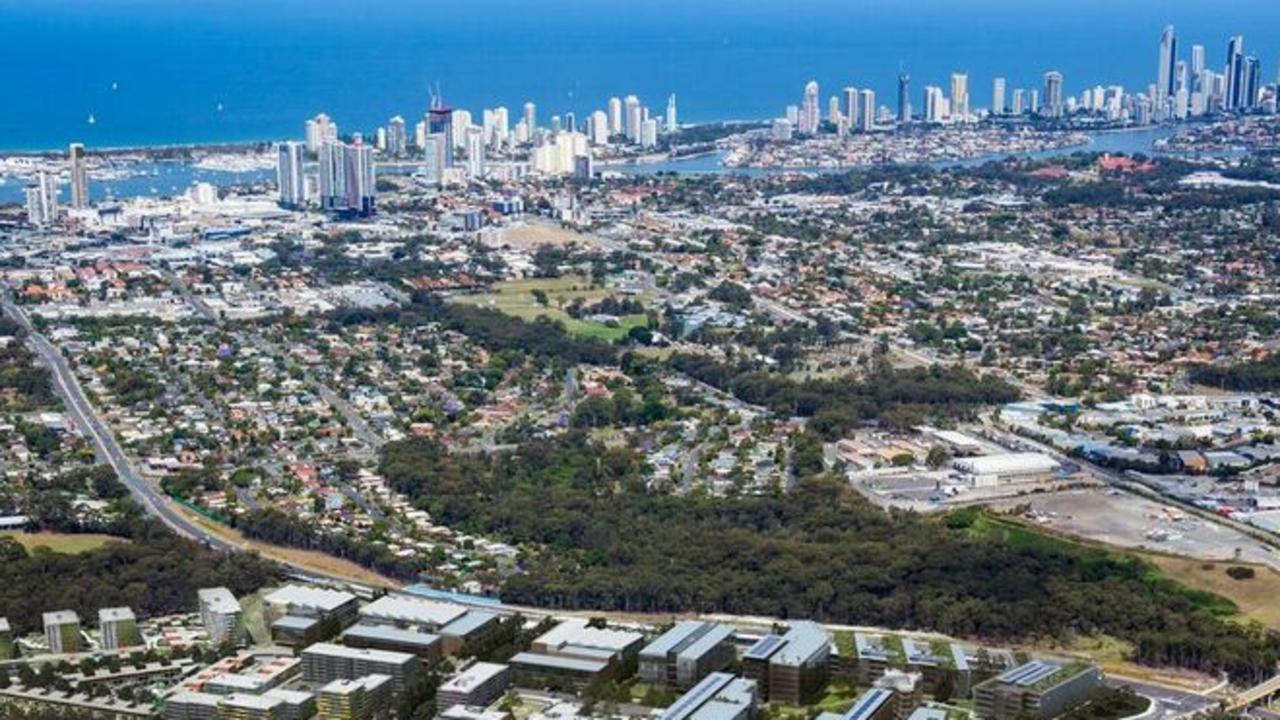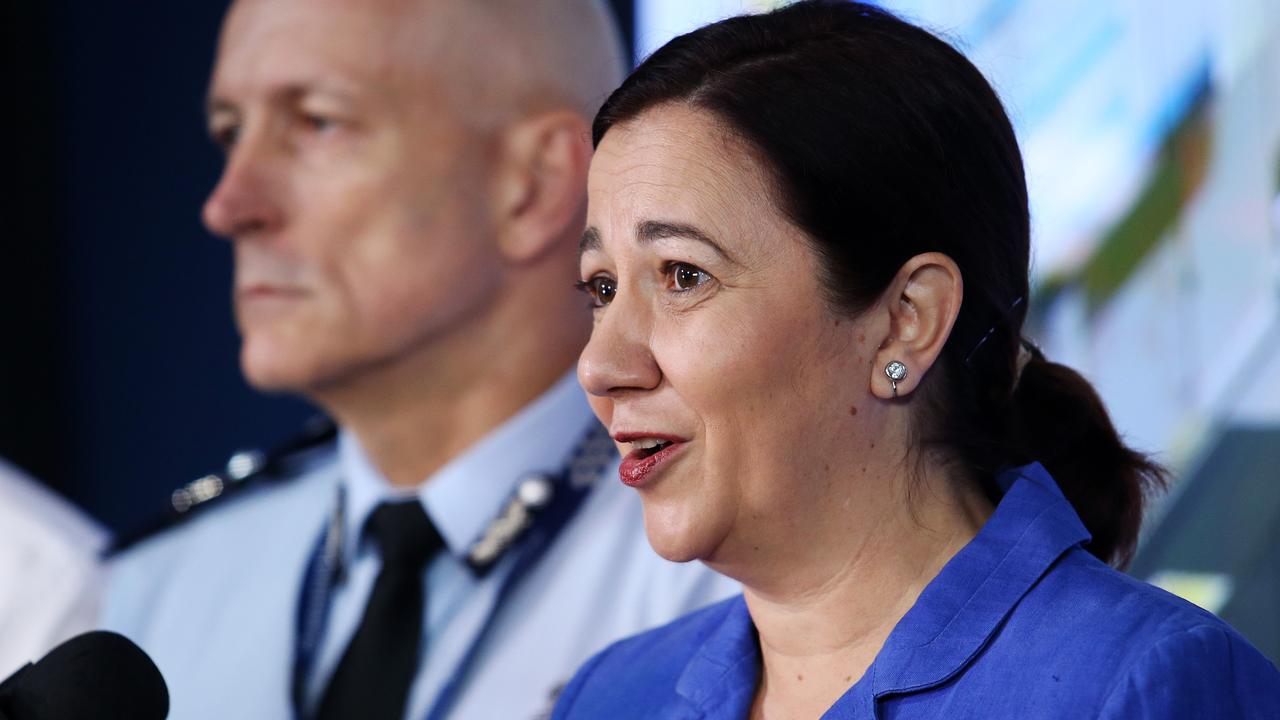Green development: what Gold Coast city leaders think of ‘one of the most biodiverse cities in Australia’
THE Gold Coast is the nation’s development hotspot, but plans are afoot to preserve the city’s green space and bolster our environmental credentials. Here’s how the Gold Coast’s Golden Age will leave other city’s green with envy.
Golden Age
Don't miss out on the headlines from Golden Age. Followed categories will be added to My News.
FROM World Heritage-listed rainforests to the best beaches in the world, the Gold Coast is considered one of the most biodiverse cities in Australia.
And developers, conservationists, scientists, the council and Mayor Tom Tate have stressed it must be preserved and promoted.
In the midst of a development boom the Gold Coast City Council has actually resolved to increase the area of the city covered by native vegetation.
Council’s Our Natural City Strategy aims to increase the city’s coverage from 50.39 per cent to 51 per cent by 2022.
GOLDEN AGE: NEW $15M CITY PARKLANDS PLANNED
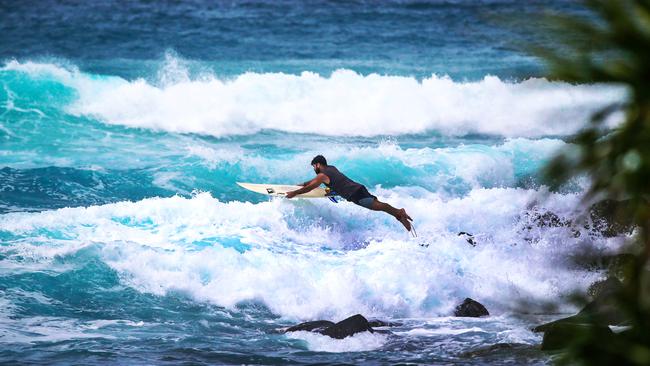
The strategy plans to: “to achieve a vibrant and resilient natural city where development is managed to provide the infrastructure and jobs essential to quality lifestyles and prosperity while nurturing a respectful balance with nature”.
Urban Development Institute of Australia Gold Coast and Logan president Sean Sandford said integrating developments into the natural environment was something the industry was working towards.
“As a developer we spend a lot of time on those things,” Mr Sandford said.
“I know we get a lot of bad press where people say ‘oh they’re just in it for the money just bulldoze every tree in sight’.
“We need to ensure the developments we are producing integrate with the natural environment and continue to maintain those green spaces.
“Things have to change, we have to grow with that change and we have make sure we provide the necessary amenity.”
GOLDEN AGE: WHY ROBINA PARKLANDS WILL BE OUR CENTRAL PARK

Gold Coast and Hinterland Environment Council president Lois Levy said the city should be pushing for more green space in urban areas, rather than relying on the hinterland for the quota.
“Outside the urban footprint obviously we’re doing quite well but it’s inside the urban areas where we’re not getting the per percentage of green space we need for people and wildlife,” Mr Levy said.
“We should be aiming for the global standard which is four hectares per 1000 people.
“With more and more urban development in a confined space creates a heat sink, we also need green space because it is important in keeping areas cool.”
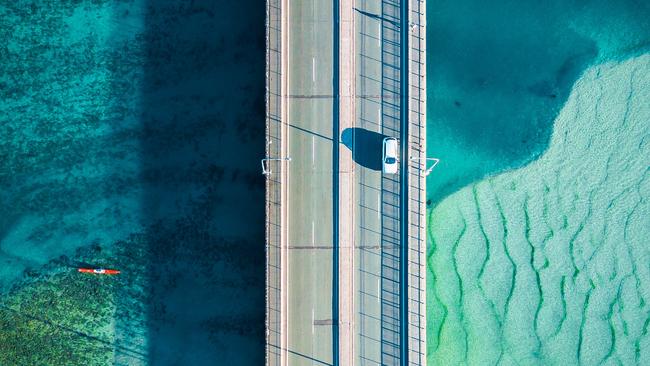
Mayor Tate said the city’s “Green Age” had come and it was time to: “open up our green spaces”.
“Living in balance with nature means undertaking a multifaceted approach and that is why I am leading a Council that is doing just that by investing in the ‘green behind the gold’.
“The Gold Coast welcomes 13,000 new residents each year — with no sign of slowing down — and I don’t want to see urban sprawl as the solution to housing these people,” Cr Tate said.
“The answer — build up, not out. That is why I ensured the new City Plan concentrated growth in existing urban areas.”
He said that did not mean the city would be overrun with high-rises.
“The City Plan protects the amenity of our ‘city of villages’ and ensures future high-density dwellings are in proximity to the light rail corridor.”
“Every single Gold Coaster owns a part of our natural assets and I am committed to ensuring as many people as possible get to be a part of our city’s ‘Green Age’ by experiencing our beautiful environment, loving it, and helping conserve it for future generations.”
Griffith University climate change response program director Professor Brendan Mackey said the city should double down on promoting its natural assets.
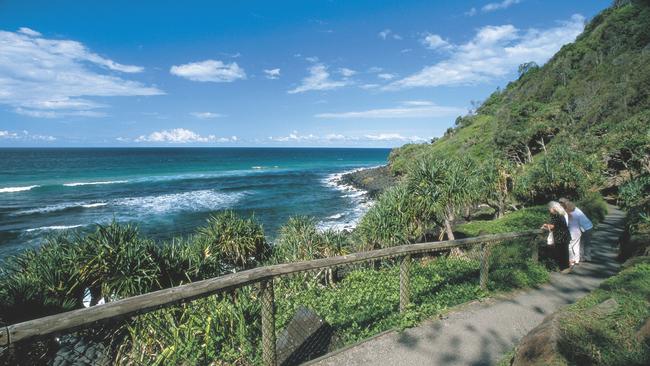
“How can we make better use of our natural resources. Our beaches are the cleanest and the safest in the world,” Professor Mackey said.
“I’m in favour of more dense urban living. I’ve had friends visit Robina from European cities and say ‘my god, what beautiful a medium density area’ in places like Varsity Lakes.”
“The city needs to grow up, there’s a lot more than meter maids, as beautiful as they are.”

